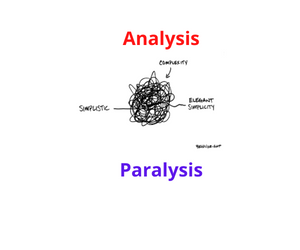Kweku Adoboli. The $2.3B dollar man. Today seems an appropriate day to look at rogue trading, as the man who brought Ossie Grübel’s second coming to an abrupt end appeared at Southwark Crown Court in London; “innocent on all counts m’lud” said the young man. Now if you are ready to believe that, I have a very nice used Swiss Navy aircraft carrier I can sell you. Before we take a look at some of the traits of rogue trader behaviour, there is one great associated story from the Square Mile worth sharing. Hanging out recently at City airport, a regular haunt for the business commuter in Europe, a great source told me that actually a couple of weeks prior to the loss being discovered the running tally was some $10B worse, which would leave you wondering whether this guy ought to be fired for losing 2B or re-hired because he made 10B. But, we digress, and must turn our attention to the more mundane questions of everyday life. How is it operationally possible to miss things that are wrong and let these huge losses suddenly surprise and even overwhelm a whole bank?
I must make it clear that I have no more specific insight into matters at UBS than the next guy, in spite of any Swiss connections, however in my many years on the street, there have been incidents at places I have worked and well publicised cases, such as Joe Jett at Kidder Peabody. Some of the things I refer to and draw on were never made public, so given the purpose of this blog is to share lessons learned and not to point fingers, there are no names here.
Potential ingredients at UBS: Now to lose any money in the real world, you need real world trades. To lose $2.3B, you need a lot of trades or some really big trades. This loss happened in an area of the bank known as Delta1 trading. In layman’s terms that means “flat risk, with positions that are equal and opposite”. Everyday, traders’ accounts are reviewed by team of back-office staff called Product Controllers (Editor’s note: I have never been a fan of the term back-office, but as it is well understood, I will simply bow to market norms) Now even if the Swiss, of which I am a passport carrying member of the club, are renowned for getting up early and waking up late, I seriously doubt that this was case of “not booking the hedge”, in other words not booking the offsetting trade. To generate a loss of $2B, even in volatile markets, would need a trade volume of some $20B. That really would stick out. That said, a few potential tools of the rogue trader’s arsenal come to mind:
Suspense or wash accounts: There are myriad reasons, albeit an ever shrinking group of good ones, why trades may not be booked into the final account the first time. There may be a process of average pricing over the day. this means booking many executions n the same security and then “re-booking” this as one net or aggregate trade at the end of the day. Accounts may not be open in time. Now many a balance has suddenly been found in a suspense account and many a rotten old stinking one too. The point here is twofold: first, there are fewer reasons for using these than ever before, and secondly, as an Operations professional you need to have a very eagle eye to monitor these things. What is legitimate and what is not? General rule of thumb; stuff that ends up there at the end of the trading day needs to treated with suspicion. Second rule: relative to other business in the same trading account, that suspense account activity should be pretty limited. It is not the norm
Cancel / corrects: These things drive me crazy. Whilst they are not at all exclusive to rogue traders, I consider them to be evil. People cancel trades after value date, causing horrible accounting issues. Allowing for cancel / corrects occupies hours of time on every project and tends to derail progress to defining the normal process. Now I would love to prescribe a banking world where there are no cancels and you simply book a counter trade and then book what you intended to book. Sadly, rather like the US government deficit, these thinga re hear to stay. Cancel / Corrects have though often been used by rogue traders; book a trade, cancel / correct it and do the same again when something is questioned or even every day. In one case I am familiar with, an Asian based trader had differences every day and every day there were cancel / corrects in his book. He made up some story about it being related to overnight information with New York. The exact story does not matter, but what does is that the back-office staff saw this so regularly that they bought in to the story it was normal. In this case things were not helped by a local culture that does not question authority and in the banking world front-office people are often considered superior
Concentrated Activity in an account: Last week, I shared the example of traders directing business to specific brokers. Coming back once again to the fact that underneath a $2.3B loss there has to be real trades in the real world, or as insiders refer to it, street-side activity, and pretty substantial volume of activity at that. Add to that, the fact that a Delta1 trading book needs two sides, then a logical conclusion is that may well have been some internal facing transactions that were not what they seemed. If those trades are booked to, say, a private client, then confirmations start moving around inviting scrutiny, if too many accounts are used, that too is likely to lead to discovery. I have already mentioned suspense and wash accounts. So, if it is not them, the next tell tale sign would be a large volume of activity in “unlikely” accounts. These would be names that just don’t seem to fit the business
Long dated trades: Our business loves a convention. In the securities business, we have T3 or T+3. No, this is not a guys’ magazine full of tech gadget, rather it refers to the settlement date of a transaction being three days after the trade date. In foreign exchange it is T+2 for spot trades. Forwards have all sorts of dates, but are typically not more than 10% of activity. In other words, at a simple level, and simple is often all we need, anything not T+3 in equities or T+2 in FX is “suspicious”. Now a typical banking business will have controls in place to ensure there is a confirmation received in for every trade; for the most part on trade date, with the overwhelming majority being accounted for by close of business on trade date plus 1. Now it can happen that if trades are long dated, confirms are not matched until near value date. Not a good practice, but it does happen. it is also often the case that for retail business, the bank sends a confirm but does not expect one back. This is fine if the client enters the order electronically, or via a relationship manager. Some method that is irrefutable. But, it is not ok if the trader books the ticket and once again, even if retail clients do not confirm trades, I can’t help thinking there were a mighty load of trades in one or just a few accounts
From other parts, repeat offenders or “this bloke’s got previous”: Not all rogue trader cases make it into the public domain. With good reason, as some of them would make the current debate about Stephen Hester’s £1million bonus look somewhat trivial. Some years ago, as part of the roll out of a new operational process, I had to recruit some “volunteers” to be trained in a new process. As this was sponsored by a member of the Executive Committee, there was some pressure to get some really good people assigned to this new, new thing. For my division, HR sent me a list of all the possible candidates. One name was familiar, but not in the phonebook. Curious, I phoned HR, to ask about this particular person. “New hire, ” the senior HR person told me, “starts next week”. The guy’s name was familiar, but as it was not an unusual one, I asked it it was the same person by that name who had previously worked at two specific institutions. “Yes, that’s him,” I was told enthusiastically. I was dumbstruck. I knew this person quite well. Twice he had been unceremoniously sacked for unauthorised trading and at least in the one case, lying, once at a bank I had worked at, albeit after my time. Now at the time, I worked in a division with maybe 70 people. As part of the HR process, we had to list previous employers, which is a task I am sure is inflicted at most other shops and in most other industries. So, I asked this person: “Just by the way, do you know why this person was let go from their last two jobs?”. “No. Would you mind telling us what you know?”. When I spilled the beans, you could proverbially hear the sound of jaw crashing on the desk. Now at that moment, I was amongst the ten or so directors in the division and HR had the detail of my having been at the same place at the same time as this new hire. Did they bother to ask any questions? No. Now call me simple, but this tells me either some of these processes are a waste of time or the HR folk are none too clever. Well, I made my point and left it with HR. Some 12 to 18 months later, there was a rogue trade incident; this trader, with previous bad behaviour, was found to have put on massive volumes of unauthorised trades and to have generated a loss of just under $100 million. Quelle surprise! A big carpet was needed to brush that one under
Lessons Learned: There are patterns of abnormal activity a good Operations professional should be on the lookout for and have the controls to check up on. Three of the usual suspects are i) Cancel / Corrects, ii) Wash or Suspense Accounts and iii) Long dated trades and the confirmations that go with them. And, not to forget the HR aspect, get references and at least ask people in your shop that were at the same place at the same time as your potential new hire for a view. Of course, there are all sorts of “risks of bias” around that, but that is when HR folk need to earn their salt and interpret those comments.
Share on:




You are welcome